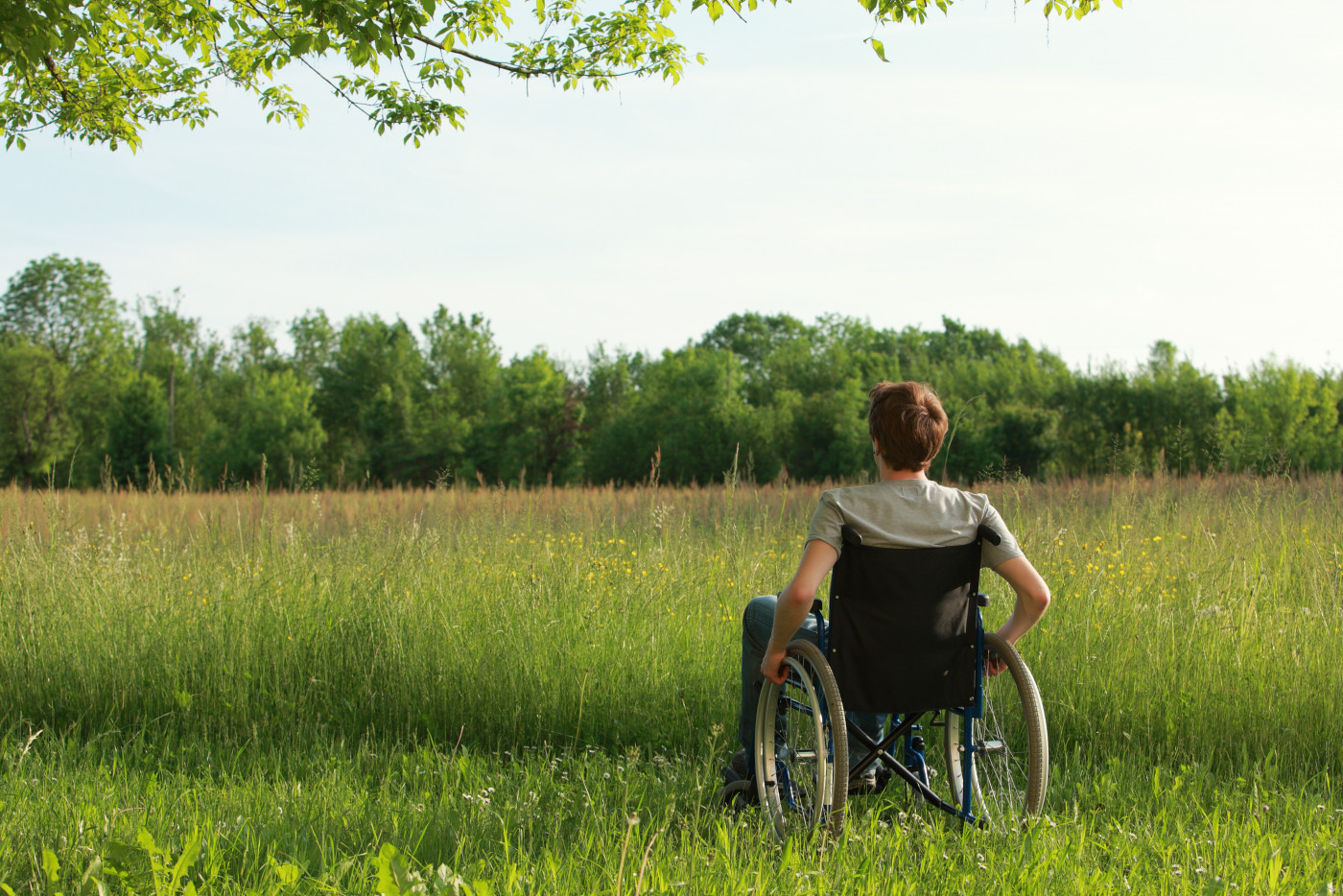Ocrevus May Delay by 7 Years PPMS Patients’ Need for Wheelchair
Written by |

Ocrevus (ocrelizumab) treatment may delay the need for a wheelchair by seven years in patients with primary progressive multiple sclerosis (PPMS), a study reports.
This delay, drawn from clinical trial data on treatment- versus placebo-group patients and supported by real-world findings, likely translates to long-term benefits for PPMS patients, its researchers wrote.
The study, “Risk of requiring a wheelchair in primary progressive multiple sclerosis: Data from the ORATORIO trial and the MSBase registry,” published in the European Journal of Neurology. Part of the data was previously presented at the Congress of the European Committee for Treatment and Research in Multiple Sclerosis (ECTRIMS) in 2019, and at the 2018 Congress of the European Academy of Neurology (EAN).
Ocrevus, marketed by Genentech, is the first and only approved disease-modifying therapy in the U.S. and European Union for PPMS. Its favorable benefit-risk profile has been consistently shown in several clinical trials.
One such trial, a Phase 3 study called ORATORIO (NCT01194570), found that PPMS patients taking Ocrevus were 24% less likely to have confirmed disability progression for 12 weeks than those taking a placebo.
Confirmed disability progression is a measure of the increase in a patient’s Expanded Disability Status Scale (EDSS) score that is sustained over a certain period of time, which means a patient’s physical disability has increased. The higher the EDSS score, the greater is a patient’s disability level.
Now, further analyses of ORATORIO’s double-blind and extended control periods show that taking Ocrevus reduced the risk of a patient reaching a 24-week EDSS score of seven or greater by 46% compared with those on placebo.
Reaching an EDSS score of 7.0 or higher “is a key clinical disability milestone, as this represents an inability to walk [more than] 5 meters, even with an aid, essentially leading to the requirement for a wheelchair,” the researchers wrote.
When these results were extrapolated to estimate the median time to requiring a wheelchair, the researchers found it was 19.2 years for patients on Ocrevus and 12.1 years for those on a placebo, meaning Ocrevus may delay the need for a wheelchair by seven years.
Real-world data from PPMS patients in the international MSBase registry was used to validate these extrapolations. Data here showed that the median time to requiring a wheelchair was 12.4 years in untreated patients, which was similar to the 12.1 years for those in the ORATORIO study’s placebo group.
“The plausibility of the extrapolated median time to reach this milestone in the placebo group was supported by observed real‐world data from MSBase,” the researchers wrote.
After extending its observation to include the open-label extension phase of ORATORIO, which followed its double-blind and controlled study periods, the team found a similar trend, further indicating the extrapolations were reasonable.
While real-world data were used to support the extrapolations, the researchers are cautious about generalizing the results.
“It is important to note, however, that due to the restricted eligibility criteria for ORATORIO, patients were generally younger, had a shorter disease duration and had lower levels of disability than a typical population; therefore, it may be difficult to generalize these results to a broad real-world PPMS population,” the researchers wrote.
Further studies are needed, they added.
Nonetheless, based on the results obtained, the team concluded that “compared with placebo, ocrelizumab [Ocrevus] significantly delayed time to 24‐week confirmed wheelchair requirement in ORATORIO.”
The researchers also emphasized that “time to requiring a wheelchair is a well-defined outcome that allows comparisons to be made across studies and across cohorts. Furthermore, it is a clinically meaningful outcome for patients; high levels of disability are associated with a number of physical, emotional and financial challenges, and an overall reduced quality of life.”


